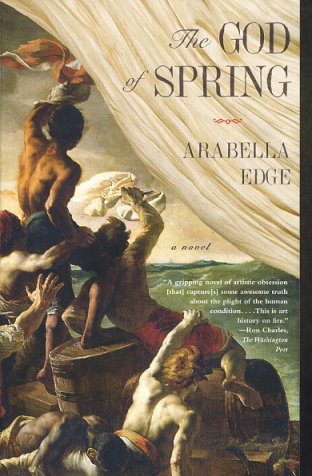- Welcome to FictionDB, Guest
- | My Account
- | Help

The God of Spring — Arabella Edge

When the French painter Theodore Gericault died in 1824 at the age of thirty-three, he was mourned as one of the most promising artists of his generation. He was also one of the most controversial, endowed with a character marked by Byronic paradoxes. The cult of Gericault's personality cast him as "genius, athlete, martyr, and romantic ghoul." Indeed, it was the stinging aftermath of an illicit affair with his beautiful young aunt that propelled Gericault into the artistic obsession that would yield his masterwork, The Raft of the Medusa.
The God of Spring opens in Paris in 1818, as the upheavals of the French Revolution, the Empire, and the Restoration come to fruition in the aftermath of a naval disaster caused by criminal negligence and tinged with political scandal. Mesmerized by the tales of betrayal, madness, murder, and cannibalism aboard the life raft of the scuttled French frigate Medusa, Gericault takes as his muses two of its survivors. His canvas pits man against nature, its dominant image a doomed sailor futilely raising his hand toward the clouds and salvation.
The God of Spring opens in Paris in 1818, as the upheavals of the French Revolution, the Empire, and the Restoration come to fruition in the aftermath of a naval disaster caused by criminal negligence and tinged with political scandal. Mesmerized by the tales of betrayal, madness, murder, and cannibalism aboard the life raft of the scuttled French frigate Medusa, Gericault takes as his muses two of its survivors. His canvas pits man against nature, its dominant image a doomed sailor futilely raising his hand toward the clouds and salvation.
Genres
Sub-Genres
Click on any of the links above to see more books like this one.


